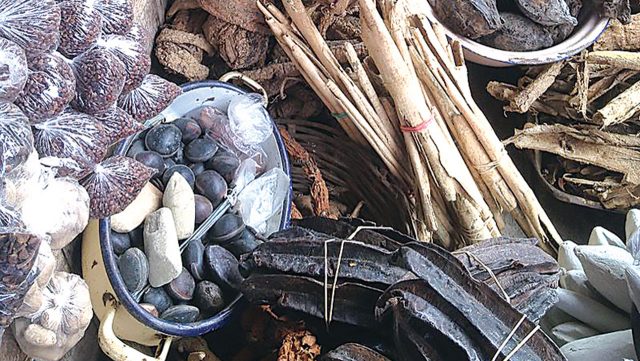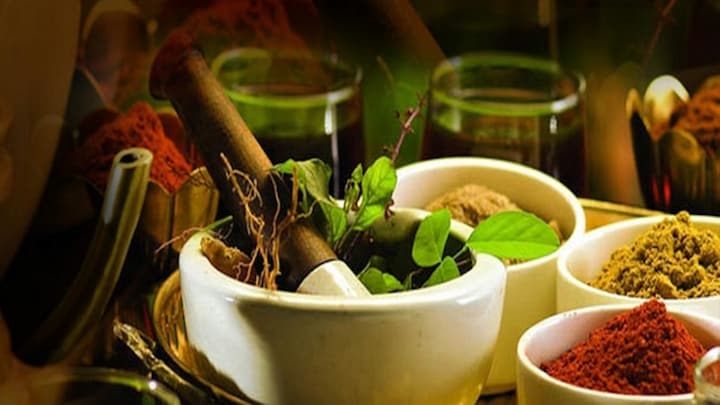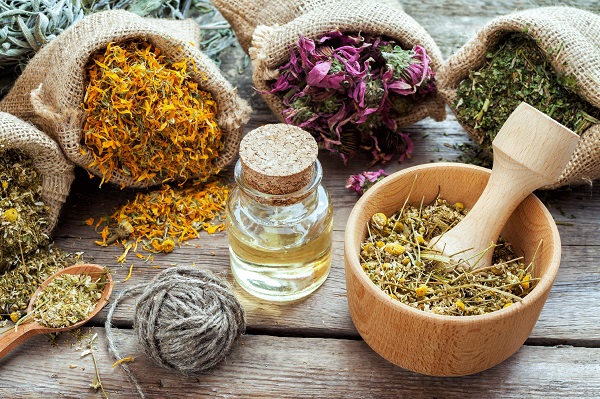Dear Beamers,
Greetings! In alignment with our dedication to providing thorough insights and updates, we are pleased to delve into the prevalence of traditional medicine and its increasing acceptance among certain segments of the Nigerian population, sometimes even surpassing the preference for Western medicine.
Nigerian traditional medicine represents a holistic healthcare framework incorporating elements of divination, spiritualism, and herbalism. Unlike the conventional perception of illness as solely a physical affliction, it acknowledges the interplay of natural and supernatural factors, necessitating a dual approach to treatment involving both physical and spiritual interventions such as divination, incantations, animal sacrifice, exorcism, and herbal medicine.
The most widely accepted form of traditional healing, which is perceived as benign and devoid of spiritual connotations, is herbal medicine. It stands as the oldest and most prevalent medical system in Nigeria and globally. Herbal medicine finds application across all societies and cultures, encompassing the use of various plant materials such as leaves, bark, berries, flowers, and roots, either individually or in combination, for therapeutic purposes in humans and occasionally animals.
“Herbal treatment approach relies on a deep understanding of the healing properties inherent in native plants and the pharmaceutical procedures needed to convert them into medicinal remedies. This involves steps such as selecting the right plants, preparing them, determining proper dosages, assessing effectiveness, and evaluating potential side effects. While the use of herbal medicines is widespread across various cultures, the specific plants and treatment methods employed may differ from one place to another.” Says Effiong Clement
Herbal medicine forms the foundation of traditional healing practices, incorporating a variety of ingredients primarily derived from herbs, supplemented by minerals and animal components. Initially deemed primitive by Western medicine, herbal remedies have gained credibility through scientific inquiry, leading to a deeper comprehension of their therapeutic properties. Consequently, numerous pharmaceuticals have been developed based on phytochemicals extracted from herbal sources.
The person that administers herbal medicine is fondly referred to as a traditional healer. A traditional healer within a community offers medical services utilizing herbs, minerals, animal substances, and culturally specific methods aligned with the beliefs and traditions of their people. Many traditional healers possess expertise in psychotherapy, faith healing, circumcision, and other therapeutic practices. They are often valued members of society for their effectiveness in treating various ailments such as snake bites, whitlow, tuberculosis lymphadenitis, uvula removal, abdominal surgeries, and infections due to their prompt and accessible healthcare solutions.
.
Traditional healers adopt a perspective distinct from that of Western practitioners regarding life and health circumstances. While recognizing the physical causes of diseases, they also acknowledge the potential influence of supernatural forces on health deviations, a dimension often overlooked in Western medicine.

According to Adetoun Olatunbosun, a graduate of biochemistry from a Nigerian university,
“For traditional medicine, there is always an attempt to provide an explanation for why someone is afflicted with a particular disease at a specific time. Diseases are often attributed to various factors, including witchcraft, gods or ancestors, natural causes, or hereditary factors. The prevailing belief is that illnesses are linked to supernatural causes, such as displeased spirits, witchcraft, or malevolent spirits, even for conditions now understood in modern medicine, such as hypertension, sickle-cell anemia, cardiomyopathies, and diabetes. African traditional beliefs view human beings as comprising physical, spiritual, moral, and social dimensions.”
Traditional medicine is best comprehended as a fusion of knowledge and practices employed in the diagnosis, prevention, and treatment of diseases. This amalgamation often draws upon accumulated experiences and observations transmitted across generations through oral traditions, commonly conveyed through narratives, or spiritually through ancestral wisdom, and in contemporary settings, through written records.
There are prevalent rumors suggesting that initiation into a secret society is a prerequisite for acquiring knowledge in traditional medicine, as certain aspects of this practice are believed to be exclusively transmitted to initiates. Although the universality of this information remains a subject of debate, many Nigerians, regardless of their background and beliefs, resort to herbal medicine as a means to address health challenges.
The methodology employed in herbal preparations throughout Nigeria is characterized by its distinctiveness, with each region and traditional healer devising their own unique methods, combinations of herbs, and preparation techniques. Consequently, there is a lack of coherence among traditional healers regarding preparation procedures and the correct dosages of herbal medicines.
Secrecy and competition continue to shroud the utilization of these remedies, as healers often hesitate to impart their knowledge to anyone other than trusted relatives and initiates. The ingredients and preparation methods vary according to the ailment and are influenced by geographical, sociological, and economic factors. Nonetheless, the crucial point remains that in many instances, patients experience relief from both physical and psychological ailments through these treatments.
One of the primary barriers hindering the acceptance and utilization of traditional medicine by certain individuals is the perceived lack of quality control, inadequate hygiene measures, and safety standards, compounded by the limited documentation of adverse reactions. Consequently, many traditional healers have opted to enhance their image by presenting themselves in a positive and hygienic manner, implementing effective promotion strategies, and improving product packaging to instill confidence in consumers. Some have taken steps to increase transparency by providing detailed information about ingredients and showcasing their facilities through social media platforms, including videos, to further build trust among their clientele.

The future prospects of traditional medicine appear promising when considering its role in service provision, expansion of healthcare coverage, economic opportunities, and poverty alleviation. Formal acknowledgment and integration of traditional medicine within conventional healthcare systems hold significant potential for the future.
Pharmacist Yetunde Babajide asserts that a key distinction between traditional medicine and Western medicine lies in their approaches to plant-based remedies. Western medicine typically conducts research on specific plants to extract essential nutrients, whereas traditional healers utilize the entire plant in their treatments. In her own words,
“The efficacy of herbal medicine is substantiated through rigorous scientific investigations aimed at unraveling the active chemistry of plants. For example, compounds like morphine and codeine, extracted from the opium poppy, are utilized for treating diarrhea and alleviating pain. Rather than relying on extensive herbal mixtures and oils for skincare, cosmetic industries leverage scientific understanding of skin health to extract essential ingredients for cosmetic products. The therapeutic or medicinal potency of a plant stems from its intricate chemical composition, with different plant parts imparting specific effects.”
Numerous training institutions cater to herbal medicine, equipping modern traditional health practitioners with extensive knowledge of the pharmaceutical properties of herbs and the cultural perspectives on diseases prevalent in society. These practitioners integrate traditional wisdom with contemporary skills and methodologies in the preparation, preservation, and disease management associated with herbal medicines.
Consumers often perceive herbal medicines as natural and therefore safe, considering them as viable alternatives to conventional medications. However, any substance with therapeutic properties can potentially lead to unwanted or adverse side effects. As with synthetic drugs, ensuring the quality, efficacy, and safety of medicinal plants is essential. Despite the global popularity of herbal medicines and their reported advantages, they are not without risks. While medicinal herbs offer established therapeutic benefits, they also carry the risk of adverse effects if used improperly or in excessive doses.
Yusuf Sulaimon contends that the probability of adverse effects is influenced by various factors in both Western and traditional medicine. In his perspective,
“Western and traditional medicine face their respective sets of challenges. Presently, many Western drugs available in the market exhibit various side effects, despite their scientific backing. Similarly, African traditional herbal medicine and healing practices encounter their own hurdles. Notably, one challenge lies in the toxicity of herbal medicines, which can stem from microbial contamination due to inadequate sanitary conditions during preparation.”
He added, “Toxicity may result from herb-drug interactions when herbal medicines are administered alongside certain conventional drugs or supplements. Moreover, incorrect identification and misuse of plants can also contribute to toxicity issues.”

Even prior to the introduction of Western medicine, Nigeria had established its own effective methods for addressing diseases, encompassing both spiritual and physical causes, with minimal or no side effects. Traditional medicine, predominantly herbal medicine, persists as a pertinent form of primary healthcare alongside conventional Western medicine. Numerous herbal remedies are widely acknowledged as safe and efficacious.
In Nigeria, herbal medicine typically serves as the primary method of treating illnesses, particularly in rural regions. Factors such as limited access to medical facilities, inadequate infrastructure including poor roads, and the affordability of treatment contribute to the widespread reliance on traditional healers. While modern, science-based medicine is widely accepted, traditional medicine continues to enjoy significant esteem. Hence, there is a growing need for enhanced collaboration between traditional practitioners and modern healthcare professionals, researchers, and drug regulatory authorities.
Therefore, exploring traditional medicine through research initiatives will enhance the local production of scientifically validated traditional remedies and broaden medication accessibility for rural communities. Consequently, this effort would curtail the expense associated with imported medications while concurrently bolstering the nation’s revenue and fostering employment opportunities within the industry and medical sector. As large-scale cultivation and harvesting of medicinal plants become more prevalent over time, an ample supply of raw materials will be available to support research endeavors, local production efforts, and industrial processing and packaging, thereby facilitating exportation.




